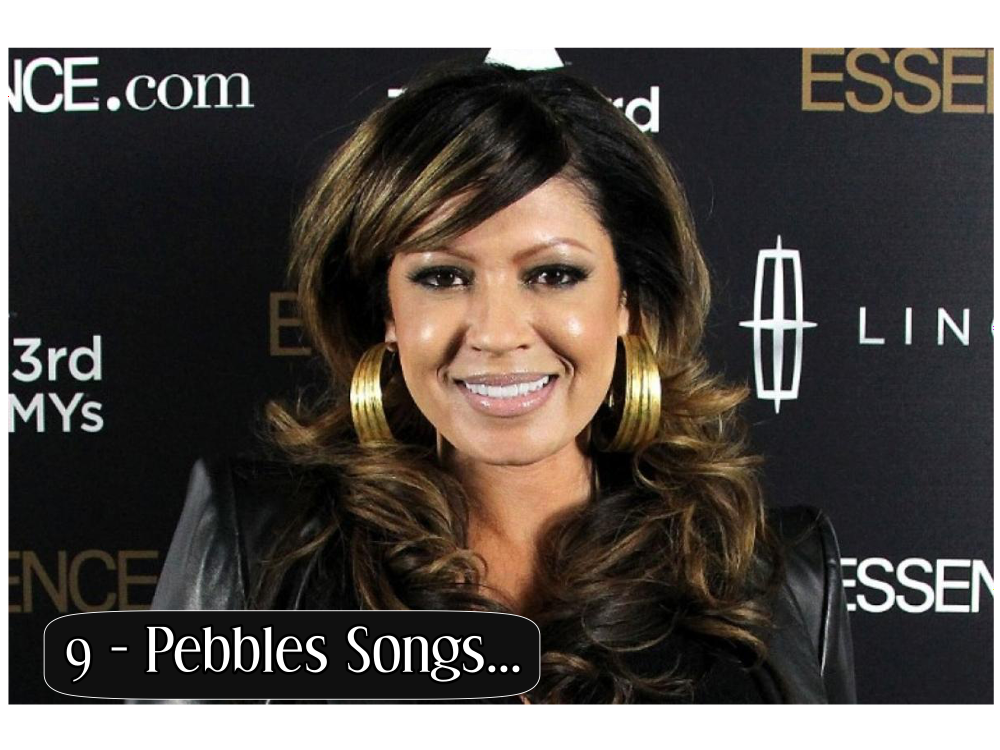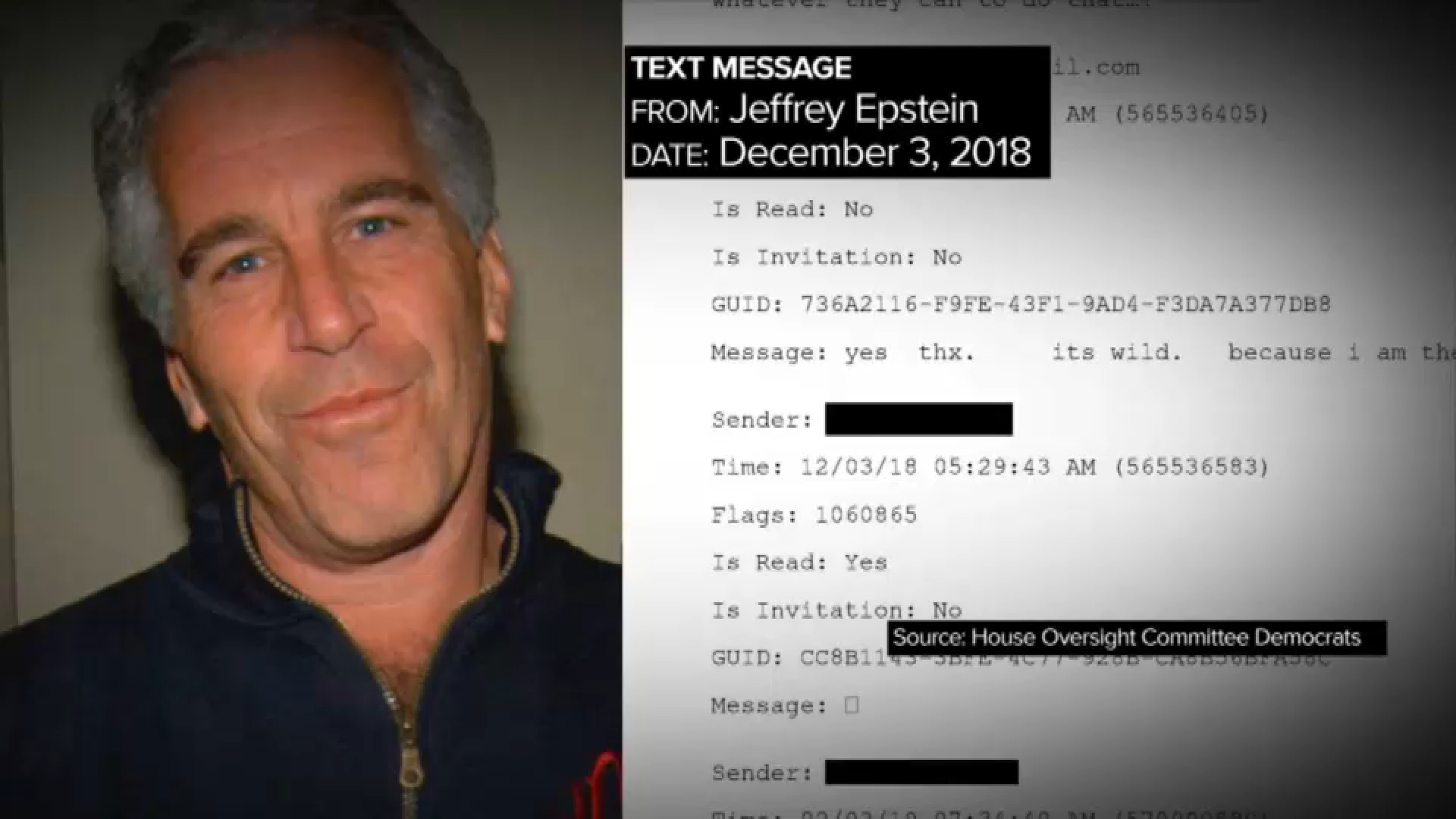(ThyBlackMan.com) There’s something special about rediscovering an artist whose music you might’ve danced to in your auntie’s living room or heard on the radio during those long summer drives. For me, Pebbles is one of those artists. She had the kind of style and presence that demanded attention—but it was her music that kept you hooked. Her voice was sweet but strong, her lyrics bold yet relatable, and her production always in step with the times.
She didn’t just ride the wave of late ‘80s and early ‘90s R&B—she helped shape it. With hits that flirted with funk, pop, and New Jack Swing, Pebbles carved out a lane that was both glamorous and grounded. Whether she was confidently asking a man if he wanted to ride in her Mercedes or letting her guard down in a soft ballad, Pebbles always gave you a little attitude and a lot of soul.
If you’ve only heard the hits or just remember her as TLC’s early manager, you’re missing the full picture. So, let’s go back and give her catalog a proper spin. Here are 9 Pebbles songs—some beloved, some underrated—that still hold weight today.

1. “Mercedes Boy”
“Mercedes Boy” isn’t just a catchy tune—it’s an entire vibe that captures the essence of late ’80s glam and groove. From the moment that unmistakable beat kicks in, the song asserts itself as a polished blend of funk, pop, and R&B. Produced with the help of Charlie Wilson and André Cymone, it’s a rare intersection of Minneapolis sound and California cool. The synth bass line bubbles and pulses with hypnotic precision, making it irresistible on the dancefloor and in a pair of headphones. This wasn’t just a radio hit—it was a club staple, a roller rink anthem, and a sonic power move.
The brilliance of “Mercedes Boy” lies in how it plays with power dynamics in romance. Pebbles turns the tables and puts herself in the driver’s seat—literally and figuratively. She’s not asking for a ride; she’s offering one. That lyrical inversion—“Do you wanna ride in my Mercedes, boy?”—wasn’t just flirtatious; it was groundbreaking. In an era where men dominated pop and R&B storytelling, Pebbles’ take on desire and control felt revolutionary. It told women they could own luxury, power, and sensuality all at once.
Vocally, Pebbles strikes a balance between sweet seduction and casual confidence. She doesn’t belt or overpower the production. Instead, her voice glides along the slick beat, her tone almost conversational at times, giving the song an intimate, girl-next-door charm. There’s clarity in her delivery and just the right amount of attitude, showing she knew how to sell a song without overselling herself. The result? An anthem that has aged with grace.
“Mercedes Boy” is timeless because it captures a cultural shift. Even today, it’s a go-to for modern-day sampling and playlist curation. Artists looking to blend sass and rhythm still draw inspiration from this track. Whether in retro R&B sets or TikTok throwback edits, it continues to prove its legacy. That’s the hallmark of a true classic—it doesn’t just sound good in its time, it drives through decades without slowing down.
2. “Girlfriend”
From the moment the beat drops in “Girlfriend,” you know you’re in for a confrontation—but make it fashion. Pebbles brings straight-up attitude, daring delivery, and sharp style to a song that could’ve easily gone the route of melodrama. Instead, it walks the tightrope between pop appeal and streetwise R&B with precision. With L.A. Reid and Babyface behind the boards, this track was engineered to be a hit—and it delivered, climbing high on the charts and putting Pebbles on the industry radar in a major way.
What’s especially compelling is how Pebbles uses her voice like a weapon of precision. She doesn’t scream or cry—she asserts. Each line is delivered with the kind of calm that cuts deeper than yelling ever could. “Girlfriend, how could you let him treat you so bad?” is both a question and a declaration of disbelief. She’s not just calling out her cheating man—she’s calling out the woman who should’ve known better. This song isn’t about heartbreak; it’s about principle.
The production is rich in that New Jack Swing era flavor: bold snare drums, bright synth chords, and vocal harmonies that fill out the background like velvet. It’s as funky as it is finessed. The tempo drives the urgency, but never overwhelms the vocals. You feel like Pebbles is strutting down a hallway in heels while delivering these lines—there’s that much confidence in her presence.
“Girlfriend” still resonates because it captured something rare: female R&B that didn’t default to vulnerability. Instead, it empowered. It was a call to arms for women to reclaim their self-worth and stop settling for mistreatment. In today’s world of unapologetic female expression in music, “Girlfriend” fits right in. It paved the way for anthems that speak truth, demand respect, and call out betrayal without losing composure.
3. “Giving You the Benefit”
By 1990, Pebbles had matured—not just in her image but in her sound. “Giving You the Benefit” reflects that evolution with its cleaner production, edgier instrumentation, and deeper emotional weight. L.A. Reid and Babyface returned to produce the track, and this time they infused it with the groove-heavy elements of New Jack Swing while still preserving Pebbles’ signature sleekness. The result is a track that’s tighter, sharper, and more emotionally layered than anything she’d previously done.
What sets this song apart is its internal conflict. Pebbles sings from a place of doubt and discernment. She’s been hurt, clearly, but she’s choosing to give grace—for now. The chorus may sound like a simple phrase, but emotionally it’s loaded: “I’m giving you the benefit of the doubt.” That’s not an admission of love—it’s an admission of hesitation. The song captures the fragility of forgiveness, that razor-thin line between hope and heartbreak.
Vocally, Pebbles pulls back just enough to create tension. Her tone is cool but not cold, reflective but not resigned. She modulates beautifully between strength and softness, creating a dynamic listening experience. Her phrasing adds color to the emotional ambivalence—she’s singing about compromise, but her delivery suggests she’s not fully convinced it’ll last.
In a world where conversations about relationships have grown more nuanced, “Giving You the Benefit” feels more relevant than ever. It speaks to the emotional labor of trying to fix something while honoring your own boundaries. It doesn’t wrap things up with a neat bow. Instead, it leaves listeners in that middle space—a place where many have found themselves, choosing love while still protecting their peace.
4. “Always”
There’s something timeless about “Always.” It doesn’t chase trends or rely on gimmicks. Instead, it embraces simplicity—and that’s where its power lies. As the title track of her second album, “Always” signaled a softer, more romantic direction for Pebbles. She traded in the feisty hooks for vulnerability, and the result was one of her most enduring ballads.
Musically, the arrangement is graceful and lush. The piano progression is tender without being overly sentimental. Soft string synths wash in and out, giving the track a dreamy, almost cinematic quality. It’s a ballad you could imagine playing during a wedding slow dance or a private, late-night moment between lovers. There’s a sincerity to the arrangement that mirrors the purity of the lyrics.
Pebbles’ vocal approach here is notably restrained but full of intention. She doesn’t belt or push. Instead, she allows her natural tone to deliver the message. “I’ll always love you,” she sings—not as a promise for perfection, but as a reassurance that love, even in its quietest form, can endure. Her vocal phrasing is delicate, and that gentleness gives the track a maturity that stands out in her discography.
“Always” speaks to a kind of emotional loyalty that’s often missing from fast-moving relationships today. It’s about the kind of love that doesn’t need constant declarations to be real—it just is. In the current era of instant swipes and situationships, a song like “Always” is a balm. It reminds us that love, when genuine, doesn’t have to shout. It just needs to show up—and stay.
5. “Love Makes Things Happen” (Babyface feat. Pebbles)
“Love Makes Things Happen” is a quiet storm masterpiece. While it’s officially a Babyface track, Pebbles’ presence transforms it into a full-bodied duet, one that speaks directly to the serendipity and subtle power of love. The song doesn’t build with theatrics—it glides, gracefully unfolding like a whispered conversation between two people realizing they’ve fallen unexpectedly for one another. That restrained production, built around soft piano chords, a lazy backbeat, and warm harmonies, makes it the kind of song that seeps into your skin rather than demands your attention.
Pebbles balances Babyface’s delicate falsetto with her richer, more grounded vocal tone. She doesn’t overpower the track—she complements it. It’s a testament to her vocal maturity that she knows when to lean in and when to pull back, letting the mood guide the delivery. The chemistry is natural, never forced. When they sing “Love makes things happen… you never know where it’s coming from,” it’s not just a lyric—it feels like a shared truth between two people who lived it.
What also makes this duet remarkable is its accessibility. The narrative isn’t about heartbreak or passion that borders on obsession. It’s about the kind of everyday magic that turns a glance into a future. The simplicity in its message is its strength. In a world that often portrays love in extremes, this song celebrates the beauty of subtlety. It reminds listeners that not all love stories need fireworks—some begin in whispers and glances.
More than 30 years later, “Love Makes Things Happen” remains essential listening for those who appreciate grown, emotionally mature R&B. Its mellow tone makes it ideal for quiet nights, slow drives, or romantic dinners. It’s the kind of track you turn to when you want to remember that love often finds us when we least expect it—and that’s exactly why it still resonates.
6. “Backyard” (1991 – Pebbles feat. Salt-N-Pepa)
“Backyard” is one of those rare songs that combines playful storytelling with a slick groove, giving Pebbles a chance to flex a more humorous, street-savvy side. Partnering with Salt-N-Pepa was a stroke of genius—bringing together two powerful forces in female R&B and hip-hop to deliver a track that’s as entertaining as it is infectious. With its reggae-tinged bounce and flirtatious tone, “Backyard” feels like summertime in audio form.
Thematically, it’s a little soap opera wrapped in three and a half minutes. Pebbles suspects her man is doing dirt behind her back—literally, in the backyard—and she’s calling him out on it with a knowing smirk rather than devastation. Salt-N-Pepa arrive to back her up with fiery verses, adding layers of wit and sisterhood that elevate the song from cute to clever. The vibe is part confrontation, part girls’ night out, all wrapped in sass and rhythm.
Vocally, Pebbles adopts a punchier, more animated delivery than we usually hear from her. It works beautifully in this context. She’s still melodic, but she uses phrasing to play up the suspicion and sarcasm in the lyrics. It’s a performance that reveals her sense of humor, her charisma, and her willingness to push beyond traditional R&B expectations. And when Salt-N-Pepa fire off their bars? The chemistry is electric, a true highlight of early ‘90s genre fusion.
In a time when genre blending is the norm, “Backyard” feels remarkably ahead of its time. Its playful storytelling, female-led narrative, and cross-genre collaboration predate the modern formula now found in hits by artists like Doja Cat and SZA. If you’re looking for a fun, funky jam that doesn’t take itself too seriously but still slaps hard, “Backyard” is exactly what your playlist needs.
7. “Why Do I Believe”
“Why Do I Believe” is one of Pebbles’ most emotionally exposed songs—a quiet, soul-baring moment that doesn’t beg for attention but certainly earns it. Unlike her more radio-polished singles, this track is internal and introspective. It doesn’t seek to resolve its emotional conflict—it simply lays it bare. The lyrics ask the essential question anyone in a fraught relationship has asked themselves: why am I still holding on to this?
The arrangement is understated, built around a slow tempo and sparse instrumentation. Soft keyboard lines float in the background while the beat pulses gently, giving the impression that the track was created as a canvas for Pebbles’ vulnerability. Her vocal delivery isn’t overly polished, and that’s precisely what makes it compelling. There’s a rawness in her tone—a quiet quiver here, a moment of hesitation there—that mirrors the doubt she’s expressing in the lyrics.
As the song unfolds, it becomes clear that this isn’t just about romantic confusion—it’s about the tension between heart and logic. Pebbles walks the emotional tightrope with incredible sensitivity, never tipping too far into bitterness or blind faith. She’s reflective, hesitant, yet emotionally present. In many ways, it’s one of her most mature performances—subdued yet powerful, modest but moving.
“Why Do I Believe” might not have been a chart-topper, but it’s a standout in her catalog for those who appreciate deep cuts and emotional complexity. It’s a song for the after-midnight crowd, for people who need to process rather than party. Even decades later, it feels like a mirror—inviting the listener to sit with their own emotional contradictions and admit, if only quietly, that sometimes we believe because we want to—not because we should.
8. “Stay With Me”
“Stay With Me” is a quintessential slow jam that demonstrates Pebbles’ ability to transition from bold, beat-driven bangers to tender, emotionally rich ballads. Positioned at the close of her debut album, it serves as a moment of softness and intimacy after a project largely built on high-energy tracks. In this song, Pebbles strips away the bravado and reveals her heart in its most unguarded form.
The song opens gently with soft keys and a slow, warm rhythm that eases the listener into its emotional landscape. There’s nothing flashy about the arrangement—just classic R&B instrumentation that prioritizes feeling over flair. This simplicity gives Pebbles the room to shine vocally. Her delivery is heartfelt, wavering just slightly in places to reflect the very human fear of abandonment. It’s this honest imperfection that makes the performance so endearing.
Lyrically, “Stay With Me” doesn’t try to be poetic or abstract. It’s direct: “Don’t leave me alone tonight.” That line, repeated throughout the chorus, becomes a quiet plea, one that lingers in the air even after the track ends. Pebbles isn’t dramatic—she’s vulnerable, and in that space, she connects with anyone who has ever asked someone to stay just a little bit longer, hoping that love will be enough.
In today’s R&B landscape, where production is often layered and digital, a song like “Stay With Me” is a welcome reminder of how impactful a simple love song can be. It’s not trying to do too much—and that’s why it still works. Whether you’re rediscovering Pebbles or hearing her for the first time, this track is a reminder that sometimes the softest songs say the most.
9. “Take Your Time”
“Take Your Time” is the kind of closing track that doesn’t demand attention—it earns it with subtlety. Nestled at the end of Pebbles’ debut album, this sensual slow groove serves as a thoughtful wind-down after a record filled with energetic anthems and fierce declarations. Here, she shifts gears completely, leaning into a more mature, emotionally intimate space. It’s not about the chase or the drama—it’s about connection, presence, and the kind of love that breathes rather than burns.
The song’s arrangement is pure ‘80s R&B seduction at its finest: soft, gliding synths, a restrained yet steady bass line, and whispering drum loops that wrap around the listener like silk. The atmosphere is lush without being cluttered, allowing the listener to truly sit with every lyric and phrase. There’s no rush in this track—and that’s the point. Pebbles creates space with every measure, reinforcing the central theme that love is better when savored, not sped through.
Vocally, she delivers one of her most restrained performances on the album. Gone is the punchy attitude of “Girlfriend” or the glossy flirtation of “Mercedes Boy.” Instead, her voice is gentle, measured, and intimate—almost like she’s whispering in your ear rather than performing for a crowd. This breathy style enhances the song’s sensuality without ever crossing into cliché. She’s not just talking about slowing things down in bed—she’s talking about emotional intimacy, trust, and the joy of simply being in the moment.
What makes “Take Your Time” so memorable is its quiet rebellion. In a decade fueled by excess and flash, Pebbles offered a track that encourages us to pause. In 2025, its message rings louder than ever. We live in an era of swipes, speed dating, and drive-thru feelings. “Take Your Time” reminds us that love, at its best, is not a race—it’s a rhythm. It’s about lingering glances, unhurried hands, and moments that stretch beyond the clock. This track may not have been a radio single, but it’s the kind of deep cut that true fans treasure—a soft closing note that resonates long after the album ends.
Pebbles gave us more than just catchy hooks and glossy visuals—she gave us songs that told stories, set boundaries, flirted with power, and embraced vulnerability. Her catalog might not be as celebrated as some of her peers, but it deserves a fresh listen. These nine tracks show just how versatile and emotionally tuned-in she really was, whether she was leading the charge with an anthem or softly closing an album with a whispered promise.
Listening back now, her music doesn’t feel like a time capsule—it feels current, relatable, and full of heart. Maybe that’s the magic of Pebbles. She made music for women who knew what they wanted—and for anyone learning to love themselves a little louder. So go ahead, queue up one of these gems tonight. Trust me: it’ll hit just as good now as it did then.
Staff Writer; Jamar Jackson

















Leave a Reply